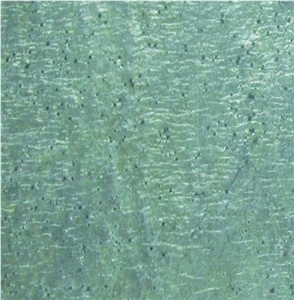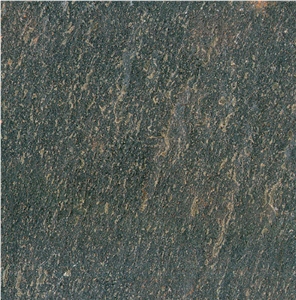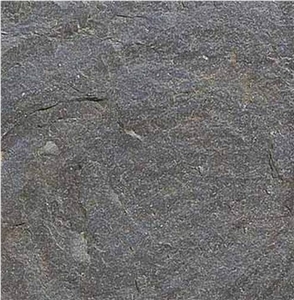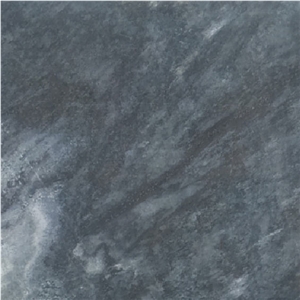Green Quartzite in India
( 4 )
Color:
Country:
-

-

-
 Additional Names:Himachal Green Quartzite,Himachal Green SlateHimachal Green Quartzite,Himachal Green SlatePost Request
Additional Names:Himachal Green Quartzite,Himachal Green SlateHimachal Green Quartzite,Himachal Green SlatePost Request India
-Quartzite
India
-Quartzite -

- 1
-
Can Brazil's Cocada Green Quartzite be used in a bathroom?Yes, Brazils Cocada Green Quartzite can be used in a bathroom. It is a durable and moisture-resistant material that can withstand the humid environment of a bathroom. However, it is important to seal the stone properly to prevent any staining or damage from water and other bathroom products.Read More
-
What is the coefficient of friction of Filled Ireland's Donegal Grey Quartzite tiles?The coefficient of friction (COF) of Filled Irelands Donegal Grey Quartzite tiles can vary depending on various factors such as the surface finish, texture, and the presence of any additional coatings or treatments. It is best to consult with the manufacturer or supplier of the tiles to obtain the specific COF value for the particular product in question. They should be able to provide you with the necessary information to ensure that the tiles meet your specific needs and requirements.Read More
-
Can Brazil's Black Lightning Quartzite be used outdoors?Yes, Brazils Black Lightning Quartzite can be used outdoors. Quartzite is a metamorphic rock that is highly resistant to weathering, making it suitable for outdoor applications such as countertops, paving, wall cladding, and even pool decks. It is durable, has a high compressive strength, and is able to withstand various climatic conditions. Additionally, the black lightning coloration of this quartzite can add a visually striking and unique touch to outdoor spaces.Read More
-
How thick is Brazil's Mandala Quartzite slabs?The thickness of Brazils Mandala Quartzite slabs can vary, but it is commonly available in thicknesses ranging from 2 centimeters (0.78 inches) to 3 centimeters (1.18 inches).Read More
-
What grade is Brazil's Le Blanc Quartzite?Brazils Le Blanc Quartzite is available in several different grades, including A, B, and commercial grade. The specific grade of Le Blanc Quartzite can vary depending on the quarry and the supplier.Read More
-
What is the coefficient of friction of Polished Brazil's Adamantium Quartzite tiles?I do not have access to specific information about the coefficient of friction of Polished Brazils Adamantium Quartzite tiles. However, the coefficient of friction can vary depending on various factors including the surface finish, texture, angle of inclination, and environmental conditions. It is recommended that you consult a tile or flooring expert who can provide more specific information about the coefficient of friction of this particular type of tile.Read More
-
How thick is Greece's Sykis Quartzite slabs?There is no specific information available on the exact thickness of Greeces Sykis Quartzite slabs. The thickness can vary depending on the manufacturer or supplier. It is best to contact a local supplier or manufacturer for precise information regarding the thickness options of Sykis Quartzite slabs.Read More
-
What grade is Brazil's Ilha Bela Quartzite?Brazils Ilha Bela Quartzite is typically considered to be of premium grade, often used for high-end residential and commercial applications. It is highly regarded for its unique and intricate patterns, vibrant colors, and superior durability.Read More
-
What is the average hardness of Brazil's Colibri Rubi Quartzite?There is no specific information available regarding the average hardness of Brazils Colibri Rubi Quartzite. The hardness of quartzite can vary depending on the specific composition and geological conditions of each individual stone. It is recommended to contact a reputable stone supplier or conduct laboratory tests to determine the exact hardness of Colibri Rubi Quartzite.Read More
-
Can Brazil's Atlantic White Quartzite be used outdoors?Yes, Brazils Atlantic White Quartzite can be used outdoors. This material is highly resistant to weathering, making it a suitable choice for outdoor applications such as paving, landscaping, wall cladding, and pool coping. However, it is important to ensure that the installation is done properly, using the appropriate techniques and sealants to ensure the durability and longevity of the quartzite.Read More
-
What is the minimum thickness for Equilibrium Quartzite stair treads?The minimum thickness for Equilibrium Quartzite stair treads can vary depending on the specific manufacturer and design. However, a common minimum thickness for such stair treads is typically around 1-1.25 inches (2.54-3.18 cm). It is important to consult with the manufacturer or supplier for the specific product to confirm the recommended minimum thickness.Read More
-
Can Brazil's Black Phantus Quartzite be used in a kitchen?Yes, Brazils Black Phantus Quartzite can be used in a kitchen. Quartzite is a natural stone that is highly durable and heat resistant, making it suitable for kitchen countertops. Black Phantus Quartzite, specifically, is known for its dark black color with subtle grey veining, which can create an elegant and sophisticated look in a kitchen. However, it is important to note that quartzite is a natural stone and will require regular sealing to protect against staining.Read More
-
How thick is Brazil's Jeriba Blue Quartzite slabs?The thickness of Brazils Jeriba Blue Quartzite slabs can vary depending on the specific slab and supplier. However, typical thickness options for quartzite slabs range from 2 centimeters (0.78 inches) to 3 centimeters (1.18 inches).Read More
-
Can Brazil's Marine Blue Quartzite be used in floor coverings?Yes, Brazils Marine Blue Quartzite can be used in floor coverings. This type of quartzite is known for its beauty and durability, making it a popular choice for flooring applications. It has a unique blue color with white and gray veins, which can add a luxurious and sophisticated look to any space. Additionally, quartzite is a natural stone that is highly resistant to scratches, stains, and heat, making it an excellent option for high-traffic areas like floors.Read More
-
How thick is China's Pergola Quartzite slabs?The thickness of Chinas Pergola Quartzite slabs can vary depending on the specific manufacturer and the customers preference. However, common thickness options for Quartzite slabs range from 2 centimeters (0.79 inches) to 3 centimeters (1.18 inches).Read More
-
Can Brazil's Innevato Quartzite be used in landscaping?Yes, Brazils Innevato Quartzite can be used in landscaping. Brazilian Quartzite is known for its beautiful and exotic appearance, making it a popular choice for various outdoor applications, including landscaping. It can be used for pathways, patio flooring, garden structures, retaining walls, decorative boulders, and as a general decorative element in landscape design. Its durability, resistance to weathering, and natural patterns and colors make it a suitable and aesthetically pleasing choice for landscaping projects.Read More
-
Can Brazil's White Santorini Quartzite be used in landscaping?Yes, Brazils White Santorini Quartzite can certainly be used in landscaping. Quartzite is a durable and versatile natural stone that is well-suited for outdoor applications. It is commonly used for paving walkways, patios, and driveways due to its strength and resistance to weathering. Additionally, its white color and unique veining patterns can add an elegant and sophisticated look to landscaping projects, such as garden pathways, retaining walls, or decorative features. However, its important to note that quartzite can be more expensive compared to other materials, so it’s essential to consider your budget and specific design requirements before selecting this stone for your landscaping project.Read More
-
What grade is Italy's Sankt Jacob Quartzite?I do not have enough information to determine the grade of Italys Sankt Jacob Quartzite. Its best to consult with a geologist or stonemason for accurate information.Read More
-
Can Brazil's Blue Clouds Quartzite be used exterior applications in very sunny climates?Yes, Brazils Blue Clouds Quartzite can be used for exterior applications in very sunny climates. Quartzite is a durable and natural stone that is resistant to heat, making it suitable for outdoor use in high-temperature environments. However, it is always recommended to consult with a stone professional or supplier to confirm the specific properties and suitability of the quartzite for your project.Read More
-
How thick is Italy's Etrusca Quartzite slabs?The thickness of Italys Etrusca Quartzite slabs can vary depending on the supplier and specific order. However, typical thicknesses for quartzite slabs range from 2 centimeters (cm) to 3 cm (about 0.78 inches to 1.18 inches). Its always best to confirm the exact thickness with the supplier or manufacturer when placing an order.Read More






